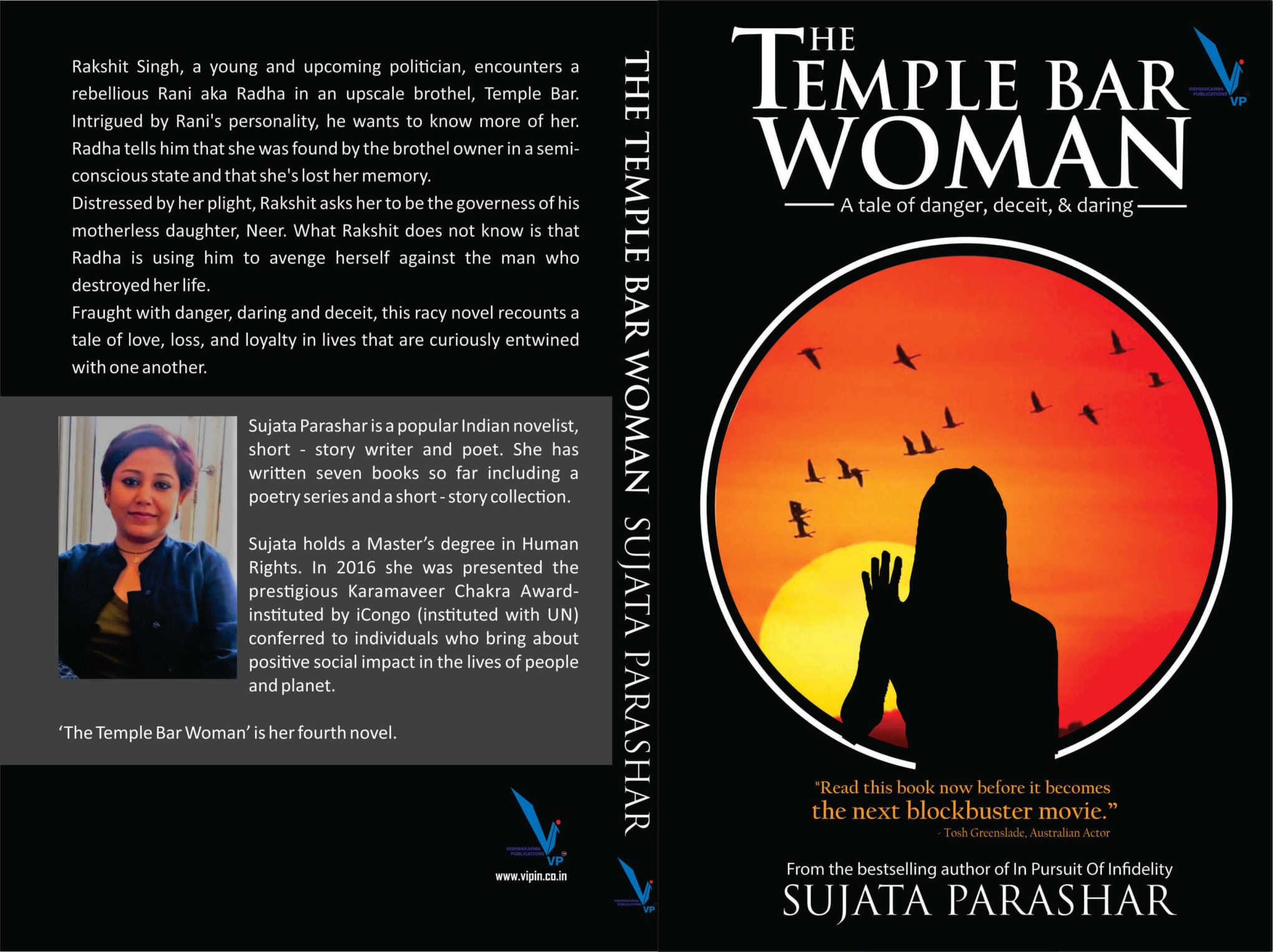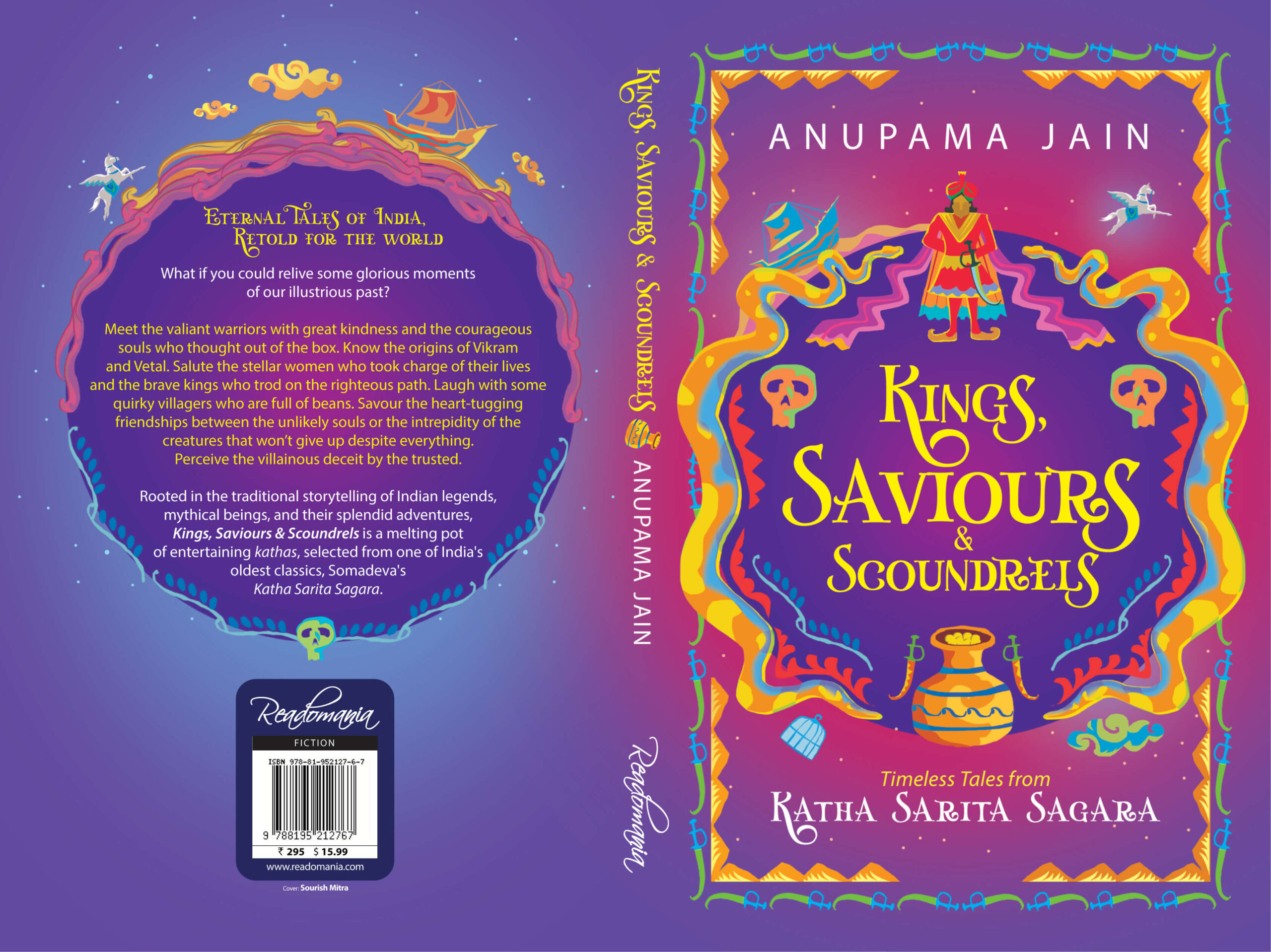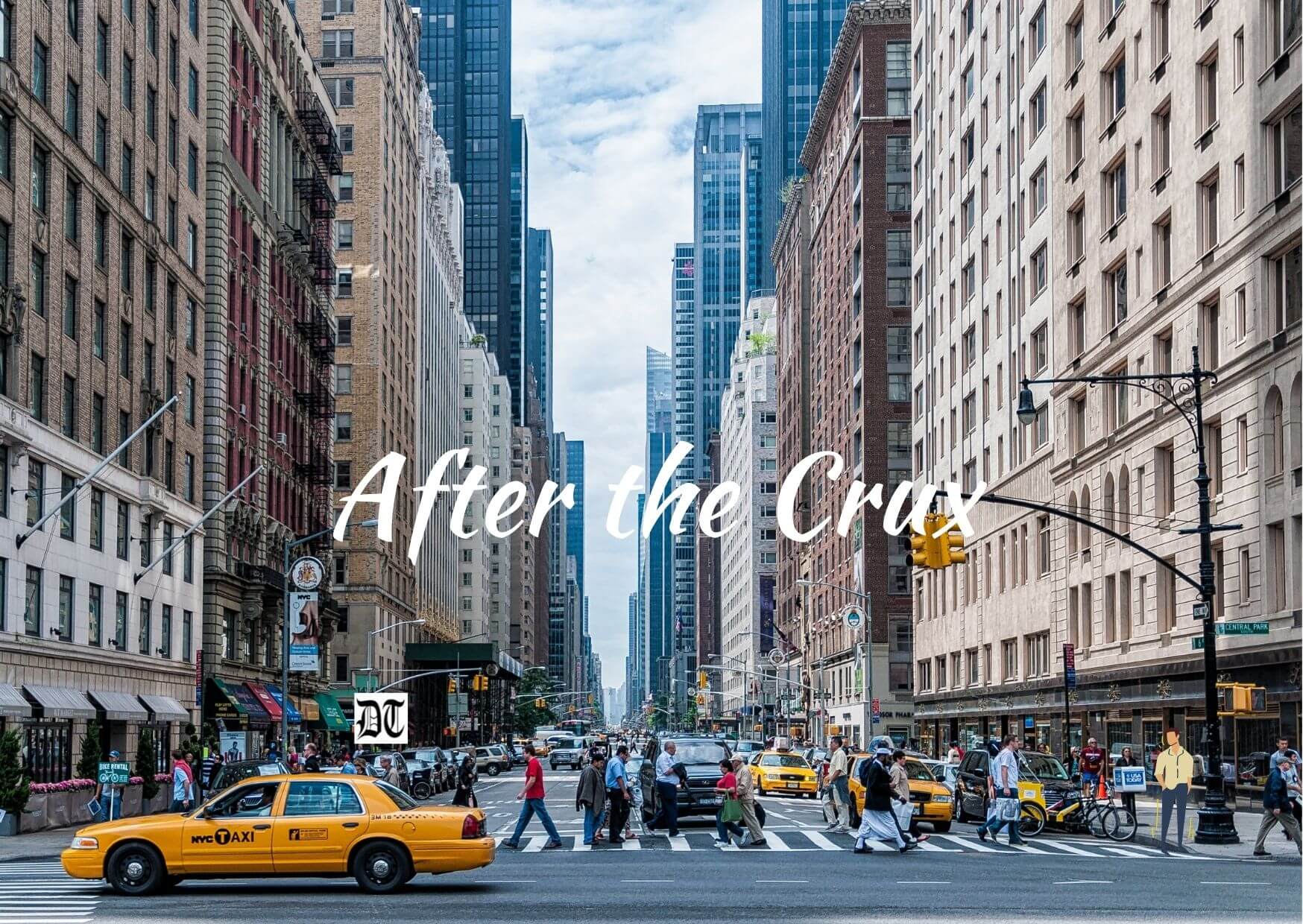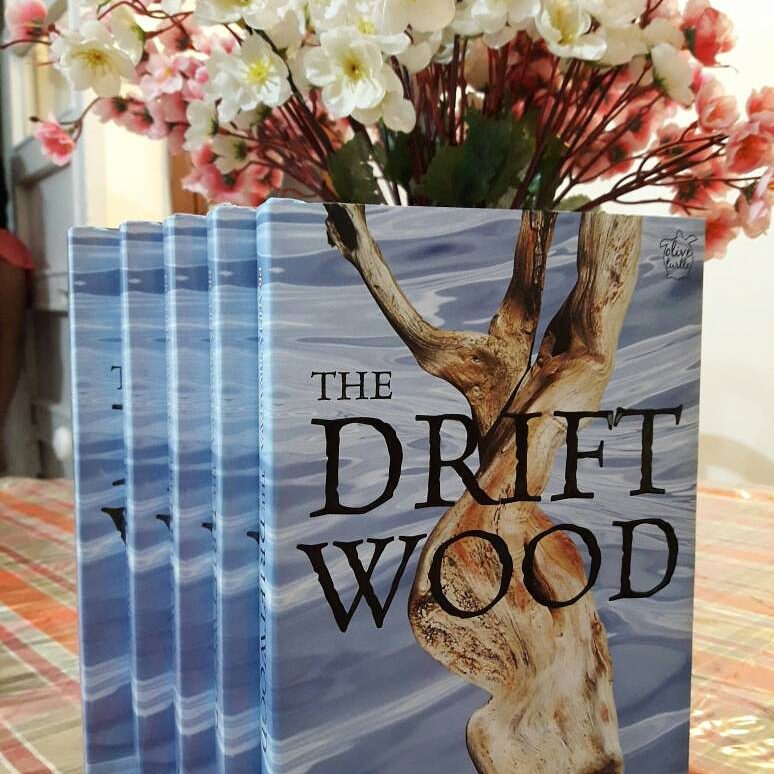Roshina is a famous writer. Love has eluded her and her passions are her work and her son Zohaib, who she has brought up single-handedly. Despite possessing grit and substance, she has never been able to journey back to Kashmir. But at the behest of her Muslim son she returns to the place she once knew as home. In Kashmir, she finds closure and finally is able to put the past behind her. And as for Kashmir, well Mughal Emperors and Bollywood have left little to the imagination. All it needs is Kashmiriyat. Read the extracts from a must read book, by Roxy Arora, exclusively in Different Truths.
Mr. Jimmy Carter, I was a little girl of eight when you fought United States Presidential elections for the second time.
I liked you with your grey hair and kind face. I wanted you to win. I was a bright-eyed and bushy-tailed little girl and couldn’t take the thought of any one losing.
I cried, when Papa announced the next day that Mr. Ronald Reagan had won.
My father sat glued to the television set as the former Hollywood star spoke his famous lines, ‘You ain’t seen nothing yet.’
I informed my teacher in school about the new Mr. President. She was tight lipped and reluctant to admit that a non-white aka me, knew more than the Briton Whites. Those were the eighties. The days when ‘The Now taboo N word, was not taboo then.’ I was the ‘Nigger’ from India.
Between those lips ever so tight, my teacher in a manner most mild said that the classroom, a forum for international politics was not. If truth be told that was school policy.
We knew more, us lot, you know the one’s tagged, ‘The Now taboo N word, not taboo then.’ Our parents had left their countries to see us shine and smile in lands where we could live the dream. They fed us all sorts of information which we had to assimilate. The Indian brain had descended from Aryabhatta. It would never let us down.
We were endowed with information our white comrades were denied. How else do we prove our mettle?
How else do we hold our head high when we face the ‘Now taboo N word, not taboo then?’
So over Weetabix (Cereal) and the Daily Telegraph, the following morning, Papa informed me of Jimmy Carter’s defeat.
Tears streamed down my face, Mr. President, as I saw you on the morning BBC news. You were going to have to leave your enormous house which had a spotless coat of white. No one should have to leave their house. Not Presidents like you, not ordinary people like us. That was the first time I cried because of you. There was the look of the defeatist about you and it made me sad.
I also cried when I left my house in England. Though it was not as big as yours. But it was big and it was in the Lake District. My house was not just a house, it was my home.
And when I left England, my home since as long as I could remember, I cried as I hung on to my father’s leg and pleaded with him to let me stay. Despite the ethnic slur, I had still managed to fit in.
And as we (my sister and I) shopped for chocolates and magazines, in W.H. Smith, at Heathrow Airport we pledged that one day we will be back. England was my home. I was in love with Adam Ant and adored Princess Di.
House leaving became a regular feature in my life so nomadic.
In the August of Nineteen Ninety, in the dark of the night, I fled from my house in Kuwait. Saddam Hussein had decided it was his new governorate. So, as Mum and me huddled under Burqas, and bullets were fired in the air, we left our ‘Home’ again. First time in his life my father, ‘A Man of Medicine’ wandered so far without his stethoscope. It broke his heart, but we had false documents stating his profession as shopkeeper. Saddam and his merry men wouldn’t need him that way. Another exodus! I thought.
All these house leavings, yours and mine have something in common…tears.
While researching for this book, I cried, Mr. Carter when I read the ‘Carter Doctrines’ and asked, ‘why?’
I felt the world would be bereft of the slaughter of nine-eleven, seven-eleven and twenty-six eleven.
Come to think of it we wouldn’t even have the ISIS. If only there hadn’t been the Carter Doctrines!
And as for the paradise we call ‘Kashmir……’ And as for my story……
[From Page 9]
***
Had Zohaib been attending ‘Those Sort Of Meetings’ which preach nothing but religious intolerance and communal violence? I have always encouraged secularism, fought for it, wrote about it. But I never knew I will pay such a high price. Was he being lured by ISIS or something equally nefarious? A piercing pain racks my skull. I clamp my hands over my ears to lessen the impact. There is a deafening noise. I can hear it again. It is the sound of gun shots. I see masked men with Kalashnikovs, militants on the roads. Blaring loud speakers warning Kashmiri Pandits and all Hindu minorities to leave Kashmir. Hand grenades and time bombs being detonated. And the dreaded slogan which has frequented my body and soul for what seems like forever. ‘Jo Khuda se kare khauff, vo utha le Kalashnikov.’ (If you believe in Allah, pick up a Kalashnikov)
[From page 25]
***
I fasten my seat belt and shut my eyes. The gentle voice of the air hostess wakes me after some time.
‘Kehva,’ she offers. My eyes blink furiously in confusion. I was never aware of the fact that Kehva was served on the flight to Srinagar. “We do in the winter months.” She answers gently as she reads the unspoken question in my eyes. My glance falls on a small Samovar in her hands. Kehva is one of the things I have left behind.
[From page 27]
***
Aunty would take us to the mosque to pray. There would be a separate entrance for women and children. Mum would also go. In fact, I would love to see my mother dressed up on Eid. She never did for Diwali but every Eid, aunty would gift Mum a lovely hand embroidered salwar shirt. Mum would never disappoint Noor aunty, certainly not at Eid. She would wear the suit with her natural elan and pray with devotion.
Why, then have we in the name of religion, chosen to defile our neighbour’s property, to plunder and wipe out their lives?
How have we succumbed to the scheming of our leaders, their intent so Machiavellian?
It’s about respecting your own religion because no Faith on this earth teaches us to hate and destroy. The tranquillity I would experience sitting next to Heena, with a chador (a long scarf) draped around me, raising my head in prayer is incomparable to any sensation I have ever felt. I have trampled bare feet in temples, made earnest requests for penance in cathedrals, taken vows of silence but I have never encountered what I felt in the mosque beside Heena, my sister, by blood. Nothing can replicate that feeling of peace.
[From page 37]
***
“But why is Kashmir called a Guldasta, Papa?” “Because my dear child. We practise Kashmiriyat which means the true respect, of all people, of all religions. We are Hindus, but we respect Heena’s religion, similarly they give regard to ours. Thus, like a big bouquet of flowers we all stay together and spread a lovely fragrance. Muslims, Hindus, Sikhs and Buddhists all reside in harmony in Kashmir. This is what we call Kashmiriyat.”
“One day we will have Kashmiriyat all over the world,” I say to myself.
[From page 38]
***
To say Jammu looked as packed as a can of sardines, would actually be putting it mildly. There were camps for Kashmiri migrants wherever you could look. It was actually tough to breathe. Just as the nose could smell sweat and grime, the mind could sense vulnerability and hopelessness. The government schools and university grounds had all been transformed into migrant camp areas. There were camps in bus stands, in railway stations, under flyovers and bridges. There were camps in places, where camps were not supposed to be like behind garbage disposal sites. When one city in a developing country like India has to accommodate nearly two hundred thousand more people, a lot will go wanting. It was a matter of survival and as Darwin correctly stated, centuries ago, only the fittest survive. Sometimes, when I would step out into the balcony, I could hear my grandfather’s house being pointed out by colony association members and comments like ‘Kashmiri migrants’ would be levelled at us. We would be blamed for the outages of water and electricity in Jammu. We were a severe burden on the already beaten economy of the city. Rohan had summed it up in a few words, we were not the visitors from the mountains anymore, we were the migrants from Kashmir. We were considered no better than lepers.
I boarded the bus to Muthi migrant camp. A lot of my school friends from Kashmir had been accommodated there with their families. It was nearly an hour’s drive from Jammu city. As I entered the premises, the pungent odour of unclean human skin assailed my senses. There were armies of insects and all sorts of creepy crawlies.
I frantically hunted for tent number two hundred and four. That was the number provided by a profusely sweating Kashmiri Pandit, sitting at the camp’s entrance. He had peered into a thick register and given me the number allotted to my friend, Surabhi Matto and her family. “It is near the latrines.” He stated, trying to be helpful as he wiped his perspiring brow. My mind reeled in horror and dismay. Had God completely forsaken all these people over here? Surabhi’s father had been the proud owner of massive showrooms of Kashmiri Pashminas and Silks on the Boulevard. If I had called her house near the Mughal Gardens anything other than palatial it would have been a blatant lie. That very house had been taken over by the militants, and she along with her family had left under the threat of the Kalashnikov. The militants had stormed into their house late at night after killing the guards posted outside. They had blazed down her father’s showrooms earlier in the day and helped themselves to the cash counter. And now she was residing near a public convenience.
‘Surabhi,’ I screamed as I waved out to her. I spotted her face peering out from under the flap of a grey canvas tent.
“Roshina, I knew you would come.” She ran towards me and we embraced each other for a long time. She took me into her camp where her mother and two sisters were busy cutting vegetables for dinner. My heart bled when I saw her sisters brewing, what suspiciously looked and smelt like turnip soup, over a makeshift stove.
“Oh Roshina! They were horrible, those last few months in Kashmir.” Surabhi wailed and told me after the pleasantries were over. “You were wise to leave earlier.” Her voice resonated the fear which would surely take years to take flight from her mind and soul.
[From page 84]
***
“I have lost my sister in a manner most sickening, to the Indian Army. Do you think that is easy to digest?” At least there was some feeling in his voice now. “How do you know for sure it was the Army? Okay, let’s say it was the Army, how do you know they weren’t Muslim?” I roared, as I became more daring. “I don’t know the actual count but till what I knew last, there were a good many Muslims in the Indian Army.”
“They were clean shaven, Roshina.” “So what, Aafaq? You are clean shaven. Does that mean you are a Hindu? Well I must say, thank you, for actually making the effort to meet me in person and breaking it off. You could have sent me one of those f…. Dear Jane letters.” I made a reference to those casual letters written usually by overseas soldiers to their girlfriends back home informing them of their change of heart.
He looked at me and remarked casually, “I must say your English vocabulary has surely expanded. This Dear Jane letter and all. I don’t have the faintest idea what you are talking about. But I don’t condone vulgar language, Rosha. It doesn’t become you. We always had been close and physical attraction between two members of the opposite sex was going to happen.” He made it sound like a Biology project.
“Since you are so sure, it is the Army. Do you think that officers would ever do it? And would they address each other as Major and Captain. That’s just short of calling each other by their first name. Can’t you see that they were deliberately misleading Heena to think it was the Army? Would they give away conclusive information that they have to get back to the Mess? How come she was found by the reporters? Do you think the Army would have dialled their number and instructed them to go and click some photos? It is the militants. They were aware of the self-recriminations that would come with rape, in a family like yours.
And now I, with my Hindu blood am a source of embarrassment to you, Aafaq. Is that what you are saying? What should we do to get even? Why don’t you get me raped by the Inquilaab Kashmir, since you do seem to be their best pal these days. Do you know, I am called the Muslim whore in college? You don’t feel bad that your fiancé is being branded a whore? Oh! But I’m not your fiancé, am I? And you are the only person who is living in purgatory hell, as you are the one who has lost his sister. I am the thick-skinned Kafir who lived on rent, on the first floor. What about my parents, Aafaq, who never thought about religion when I told them I love you? Imagine them allowing their only daughter to go ahead in a relationship, with a man whose religion would have probably demanded that I convert or will not be accepted. But they took that chance. Don’t you think it was terrifying for them? Let me tell you one thing, Aafaq Qazmi, my parents are parents, too.”
[From page 127]
***
“Human Rights Watch, did you say?” I recognized at once the scepticism in Aafaq’s smooth tone. I hurriedly interjected. “Dr. Cross, what are you going to tell us about Kashmir that we don’t already know? Is it about the atrocities performed by security personnel on civilians? Spare us the details. We also know about your native country’s treatment of its detainees and suspected terrorists. Like your methods of water boarding, sleep deprivation and forced feeding through tubes. I even have a report in which detainees have complained that they were stripped and subjected to canine attacks. What do you have to say, Dr. Cross? It’s okay when the United States of America tortures a suspected terrorist but not when India does?” I was quite surprised at my outspoken behaviour but I had felt it necessary.
[From page 135]
***
I never heard from Aafaq’s parents after that. Mum got to know through their relatives that they are somewhere in the Middle East. They have denoted their enviable wealth to charity. I will never meet them again. I have lost my Muslim family. My Muslim family which loved us family of idol worshippers. The family which would had loved a Hindu girl and would have loved the same Kafir as even more as a daughter-in- law.
For those who say it is unheard of I do not blame them as we live in a world deflowered by greed and hatred. Let me explain to them that love knows no religion and once upon a time in Kashmir, Hindus and Muslims were friends first, foremost and forever. Let me show them the papers of my Saffron Garden. A garden which belongs to a Hindu Kafir, in a town which, is proclaimed to be Muslim dominated.
[From page 171]
***
I have visited the United States several times. It is a beautiful country. There is wealth, there are immense resources. Everyone is busy and progressive. When I saw MIT, obviously I thought of Aafaq. It was once his dream to study here. I was in New York when the world trade centre incurred terrorist strikes of the deadliest type in history. I got out of my cab as the Magnificent Twin Towers burnt to the ground, altering the Manhattan Sky line forever.The fear and panic on people’s faces as their loved ones roasted. It was awful and so reminiscent of what I had seen in Srinagar. The masked men brandishing Kalashnikovs, ordering Hindu women to become sex slaves, threatening Hindu men with death. Similar fear, similar panic. How many gallons of blood and tears will be shed in exchange for oil? Places might be different, people may be dissimilar, colour of their skin may be distinct. But there are so many similarities like fear, bereavement and displacement. Today there are more than ten million refugees from Syria and Iraq. I remember the young village boys in Kashmir forced to pick up arms. Their bellies were empty and their clothes nothing but rags.
[From page 173]
***
We will have Kashmiriyat once again. All over the world. My nocturnal foes none other than the demons. In all likelihood they have finally bid me adieu. I am Roshina Kapoor and nothing can break my spirit.
[From page 200]
About the Author
Dr. (Mrs.) Roxy Arora is self-employed dental surgeon. She resides in New Delhi, NCR. She has a fourteen-year-old son.
She lived in the United Kingdom for the first few years of her life and received her primary education from there. She belongs to the state of J&K and is of Dogra ethnicity. During her childhood, whenever they came back to India for our vacations they would always visit Kashmir. Needless to say, the captivating beauty of the place enchanted her.
there. She belongs to the state of J&K and is of Dogra ethnicity. During her childhood, whenever they came back to India for our vacations they would always visit Kashmir. Needless to say, the captivating beauty of the place enchanted her.
When they relocated back to Jammu, she was extremely happy to be a part of a huge extended family. It was in India where she felt my sense of belonging. No slurs, no taints. As a child, she had always been passionate about writing and wanted to write as a profession. It just came natural to her. She wanted to pursue a career in journalism or mass communications but was dissuaded by her parents.
Her father, being a doctor, took up a job in Kuwait and they relocated to Kuwait. She studied in the Indian School, Kuwait. But then they had to run away from Kuwait when it was invaded by Saddam Hussein and The Gulf War broke out. It was 1990 and it was the year militancy in Kashmir had resurfaced in its most vindictive form. The year in which over several hundred thousand Kashmiri Hindus had fled from Kashmir evicted from their own state by religious fundamentalists. Their misery and helplessness tugged at her heart. It was so similar to what she was facing then. To lose your home, your school and your life was not easy.
She graduated from Manipal, married her classmate and settled down in New Delhi, where she started her private practice in a clinic near her home. Life was good but somewhat incomplete as the writer in her had been stifled.
After years of meditation, she gathered the courage to pen the novel she had always yearned to write. And she couldn’t imagine writing about anything other than her breathtakingly beautiful valley, Kashmir. The horror and angst which had been unleashed in those once pristine meadows and mountain tops had to be revealed to the whole world. Along with the camaraderie in which the populace of Kashmir had once resided.
About the Book
Jihad in My Saffron Garden has been written with a purpose. We as Indians have to take pride in our secular nation and we have to respect all religions and beliefs. If Hindus and Muslims could live in harmony not so long ago, then where and why did it all go awry? How could a palaver called religious difference evolve into murder and massacre? Her book was traditionally published and was launched in the month of October 2016. Anurag Kashyap, the eminent Bollywood personality was the chief guest.
(Contributed by Roxy Arora, author, Jihad in my Saffron Garden, Prabhat Prakashan)
Editor’s Note: Excerpted with permission from : Roxy Arora, author, ‘Jihad in my Saffron Garden’, published by Prabhat Prakashan. It is reproduced as received. DT has not edited it.
Publishers, authors or literary agents may please send Book Extract (fiction and nonfiction in English language), in not more than 3000 words, including Author’s Bio. Send it to different.truths2015@gmail.com, marking Book Extract in the subject line.






